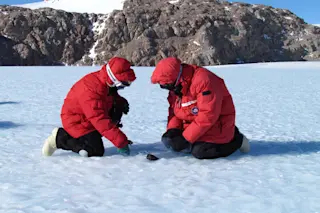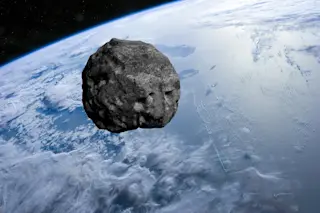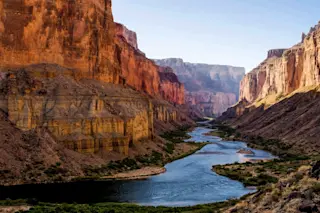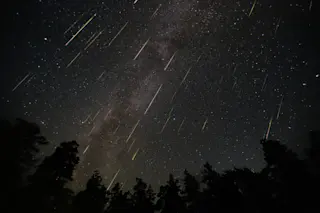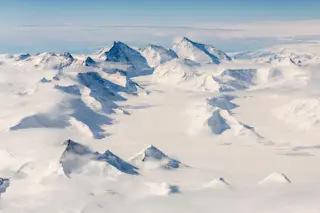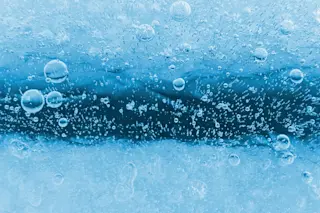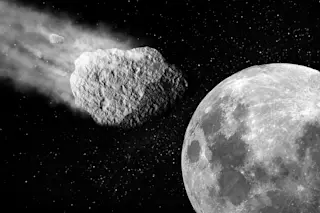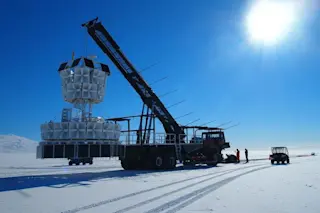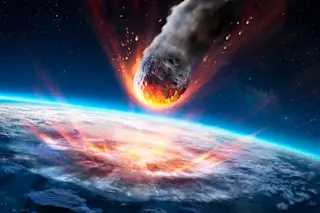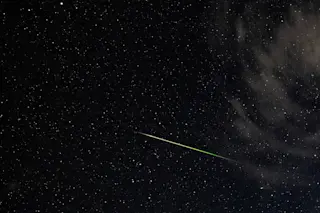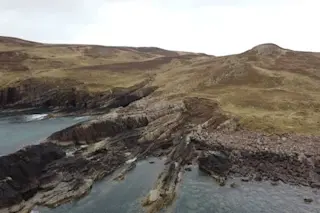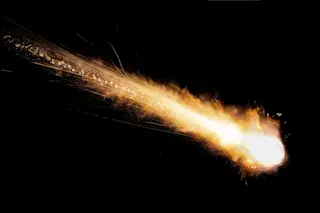Q: I’ve heard that more meteorites fall on Antarctica than any other continent. Is that true? And if so, why?
A: Researchers recover more meteorites from Antarctica than anywhere else, but it’s not because more fall there. Meteorites land everywhere with almost equal probability — it’s the Antarctic conditions that make the difference.
Many meteorites contain high levels of metallic iron, so if one falls in a humid jungle climate, the combination of moisture and oxygen will corrode it. In Antarctica, a dry desert, the likelihood of corrosion drops significantly, meaning more rocks and more pristine samples.
Meteorites are also easier to locate in Antarctica partly because of the contrast between dark rocks and white ice sheet, says Ralph Harvey, principal investigator of the U.S.-led Antarctic Search for Meteorites (ANSMET) program. And since few rocks naturally form on the ice sheets, the majority of Antarctic rocks collected are extraterrestrial. Even ...


